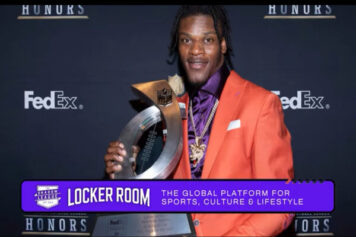This year, Steve McQueen become only the third black director nominated for an Oscar after John Singleton (Boyz n The Hood, 1991) and Lee Daniels (Precious, 2009). The sad stat, along with him not winning, has made many complain about the dearth of recognized black film directors in Hollywood, being that this role is one of the most important.
Directing is an occupation in which the practitioner must simultaneously have an eye for beauty and aesthetics like that of a portrait painter. They need an ear for beautifully spoken dialogue and written words, along with a mind for logistics. The greatest directors have the ability to communicate clearly with actors in a way that can stir emotions and viewpoints unlike any who practice other modern mediums. At best, the director should be able to bring these attributes together into an art form that has the ability to walk into our lives and change us in some special way even if only for a few fleeting seconds.
The great Oscar Michaeux is the forerunner of all black filmmakers today. Michaeux was not only considered the first African American to direct a major motion picture but he was one of the most prolific of his generation as well. His first film was a silent movie called The Homesteader. He directed a total of 13 feature films until his death in 1951 at 67-years-old.
Gordon Parks (Shaft), Melvin Van Peebles (Sweetback’s Baaadass Song) and Sidney Poitier (Let’s Do it Again, Uptown Saturday Night) have to be mentioned in any historical survey of black filmmakers. While Julie Dash, the first African American female to direct a full-length film with general theatrical release in the United States with Daughters of the Dust, is a shining chapter in black directing history as well. Names like Reginald Hudlin best known for directing the House Party films of the 80’s, Boomerang, and Ladies Man in 2000; Mario Van Peebles (Ali in 2001 and the cult classic New Jack City in 1991), Robert Townsend (Hollywood Shuffle, The Five Heartbeats), and Michael Schultz who directed such cult classics as Krush Groove (1985), The Last Dragon (1985) and 2004’s Woman Thou Art Loosed can't be forgotten. While current Directors Guild of America President, Paris Barclay, is another brother who has made films and thrived as a director on television for decades. He has directed episodes for such television hits as Sons of Anarchy (11 episodes) and Glee (8 episdoes).
The new millennium is filled to the brim with African Americans who’ve directed films. Many of the barriers to broader black inclusion from the past have been relaxed, with new tools and technology allowing for greater access than ever. Forest Whitaker is known as one of the best actors in Hollywood, but he has directed such hit films as Waiting to Exhale (1996) and First Daughter (2004). While Allen and Albert Hughes aka the Hughes Brothers are best known for Menace II Society (1993), Dead Presidents (1995) and The Book of Eli (2010).
Although the total numbers are not representative relative to the overall American population, the number of black-directed projects have been increasing at a steady but snail-like pace since the success of Spike Lee’s Do the Right Thing (1989) and John Singleton who was nominated for a Best Director Oscar with Boyz in the Hood (1991). Exploding on to the scene at 24-years-old, Boyz in the Hood earned him a nominating for an Academy Award for Best Screenplay and Director for that film, making him the youngest person ever nominated for Best Director. Hustle and Flow, although a hit movie with over $22 million earned since its release in 2005, did not earn any Oscar or Golden Globe nominations for Singleton. Terrence Howard’s performance as Slim garnered an Oscar nomination for Best Actor.
In 2013, black directors seemed to gain more love and exposure than ever before with Lee Daniel’s The Butler and 12 Years a Slave, directed by British director of African descent Steve McQueen, gaining accolades from the world. Although Lee Daniels won the award for Best Director from the Hollywood Film Awards, 12 Years a Slave and its 2014 Oscar wins have thrust McQueen into a new realm of greatness when just a few years ago, he was best known for directing the drama Shame. Racking up trophies like no black director in recent memory, his Academy Award winning best picture work on 12 Years a Slave has earned him the best director award at the New York Film Critics Circle, 2014 BAFTAs, and Spirit Awards.
This time last year, there was a strong chance that Ava DuVernay was one of the best directors that those outside the industry didn’t know. Her very first film was I Will Follow (2010) starring Salli Richardson-Whitfield. The offering was beautifully shot, wonderfully written and included great acting from Ms. Richardson-Whitfield, Beverly Todd, Omari Hardwick and Michole White. That film was followed by Middle of Nowhere (2012), another dialogue driven, honest look at a woman dealing with the incarceration of her husband. The film made DuVernay the first African American female to win the Best Director award at the Sundance Film Festival in 2012. She also created the African American Film Releasing Movement, dedicated to helping distribute quality independent film works by people of color. It is the first organization of its kind in the United States.
Despite recent news that Lionsgate has decided to not renew their deal with Tyler Perry, he's still a force, having directed over 15 feature films since 2000. Daddy’s Little Girls (2007), Why Did I get Married (2007), For Colored Girls (2010) and Good Deeds (2012) are only the tippy-top of a very big iceberg. In 2011, Forbes named him as the highest paid man in entertainment, earning $130 million between 2010 and 2011. In 2012 Perry struck a deal with Oprah Winfrey and her OWN network to bring scripted television content to the cable station.
F. Gary Gray may not have been nominated for an Oscar like Spike Lee and John Singleton, but he puts out high quality work on a consistent basis. He broke into the game with the cult classic Friday, starring Ice Cube. That was followed by Set it Off, another popular offering that starred Vivica A. Fox, Queen Latifah, Kimberly Elise and Jada Pinkett Smith. Since then he has directed mainstream films like The Italian Job (2003), A Man Apart (2003), and Law Abiding Citizen.
Malcolm D. Lee has made quite the name for himself after directing his first film, The Best Man, in 1999. Since then he has directed six films, including Undercover Brother (2002), Roll Bounce (2005), Welcome Home Roscoe Jenkins (2008), and The Best Man Holiday (2013). He has proven himself to be a versatile shot-caller with the ability to write and direct comedy and drama with equal acumen.
Kasi Lemmons’ talent for filmmaking was first given to the world in 1997 when her critically-acclaimed movie Eve’s Bayou wowed audiences across the globe. She followed that up with The Caveman’s Valentine, starring Samuel L. Jackson, Talk To Me (2007) with Don Cheadle and Chiwetel Ejiofor, and the musical Black Nativity (2013) starring Forest Whitaker and Angela Bassett.
Spike Lee is the man for more than a handful of reasons. Not only was he one of only two African American directors ever considered for a best screenplay Oscar for Do The Right Thing, his 1997 documentary 4 Little Girls, about the 16th street Baptist Church bombing in Birmingham, Alabama, was nominated for the Best Feature Documentary Oscar in 1997. Spike has directed eight films in the new millenium including Bamboozled, 25th Hour, Red Hook Summer and Inside Man.
Fans of science fiction may recall Tim Story from his directorial work on Fantastic Four (2005) and Fantastic Four: Rise of the Silver Surfer (2007). But Tim has been making moves on the big screen since 1997 with the release of The Firing Squad. Since that time he’s been behind Barbershop (2002), Hurricane Season (2010), Think Like a Man (2012) and Ride Along (2014).
Gina Prince-Bythewood is one of only a handful of sisters who have garnered mention on our humble list, but she is indeed worthy of note with such a quality offering as Love & Basketball (2000) under her belt. Her directorial career has oscillated back and forth between film and television from The Bernie Mac Show to Everybody Loves Chris. In film, the critically-acclaimed Secret Life of Bees (2008) was her most recent feature film with the upcoming Blackbird currently in post-production scheduled to be released in November starring Minnie Driver and Danny Glover.
When it comes down to it, Bill Duke just doesn’t get anywhere near enough props. You would think a black man who has been directing television since the early 80s (Falcon Crest, Dallas, Dynasty) would get more love when these types of lists come along. Maybe it’s because people are often so fixated on feature films that they often forget about the accomplishments of people like Duke. Sister Act 2 and Hoodlum are his most notable offerings. However, he has done a mixture of television, feature and documentary films since 2000. Dark Girls (2011), Not Easily Broken (2009) and Deacons for Defense (2003) are some of his more memorable works since the turn of the century.
Former actor-turned-director Carl Franklin has been in the game for three decades, but found his calling behind the camera in 1989 with Nowhere to Run, Devil in a Blue Dress (1995), High Crimes (2003) starring Morgan Freeman, and Out of Time (2002) with Denzel Washington and Eva Mendez. Most of Franklin’s recent work has mostly been on television. Recently, he directed four episodes of the Netflix series House of Cards between 2013 and 2014.
Antoine Fuqua seems to always be making submarine moves, only to emerge at the helm of another big screen, big budget offering. His first feature film was The Replacement Killers (1998). While Training Day (2001), starring Denzel Washington and Ethan Hawke, was his most critically acclaimed offering to date. Action has been Antoine Fuqua’s calling card from the very beginning. Shooter (2007), King Arthur (2004), and Olympus Has Fallen (2013) are three of his more notable works. He also is the director of Equalizer, which is currently in post-production.



